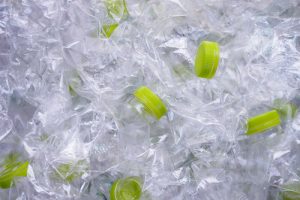 PE capacity in the North American market is expected to increase, and Pennsylvania’s governor says he’ll veto legislation prohibiting local plastic bag bans.
PE capacity in the North American market is expected to increase, and Pennsylvania’s governor says he’ll veto legislation prohibiting local plastic bag bans.

 PE capacity in the North American market is expected to increase, and Pennsylvania’s governor says he’ll veto legislation prohibiting local plastic bag bans.
PE capacity in the North American market is expected to increase, and Pennsylvania’s governor says he’ll veto legislation prohibiting local plastic bag bans.
The plastics recycling industry is grappling with what to do about China’s Green Fence, with some arguing it’s a disaster and others saying it’s the best thing to happen to domestic plastics recycling in years.
A plastics recycling firm in Central Florida says investments are in place to build two wash lines and sell almost six months-worth of agricultural plastics.
 Thousands of tons of materials were seized during a raid in the Chinese province of Guangdong last week. It’s the latest enforcement action taken as part of China’s ongoing campaign to combat low-quality recovered-material imports.
Thousands of tons of materials were seized during a raid in the Chinese province of Guangdong last week. It’s the latest enforcement action taken as part of China’s ongoing campaign to combat low-quality recovered-material imports.
 Agricultural plastics recycling expands in California, and another state looks to prohibit local governments from enacting bag bans.
Agricultural plastics recycling expands in California, and another state looks to prohibit local governments from enacting bag bans.
 With global discussions around climate change evolving, Steve Alexander has seen a narrative emerge that reducing greenhouse gas emissions in packaging development is the key to sustainability.
With global discussions around climate change evolving, Steve Alexander has seen a narrative emerge that reducing greenhouse gas emissions in packaging development is the key to sustainability.
 Two large operations involved in PET recovery in Southern California will receive assistance from a state agency in expanding or bringing facilities on-line.
Two large operations involved in PET recovery in Southern California will receive assistance from a state agency in expanding or bringing facilities on-line.
 HDPE HMW regrind was sold last week at 24 to 25 cents per pound picked up U.S. Southeast and 32.5 to 35 cents per pound picked up at locations in New Jersey, indicating a two-tiered market split into geographical regions.
HDPE HMW regrind was sold last week at 24 to 25 cents per pound picked up U.S. Southeast and 32.5 to 35 cents per pound picked up at locations in New Jersey, indicating a two-tiered market split into geographical regions.
 A container deposit is proposed in Ireland, and four European countries are given a final warning for failing to meet plastic bag reduction guidelines.
A container deposit is proposed in Ireland, and four European countries are given a final warning for failing to meet plastic bag reduction guidelines.
 The future of recovered materials exports to China remains hazy, but the Institute of Scrap Recycling Industries (ISRI) made a few things clear after a recent trip to Hong Kong and Beijing.
The future of recovered materials exports to China remains hazy, but the Institute of Scrap Recycling Industries (ISRI) made a few things clear after a recent trip to Hong Kong and Beijing.
